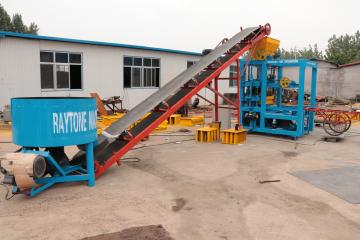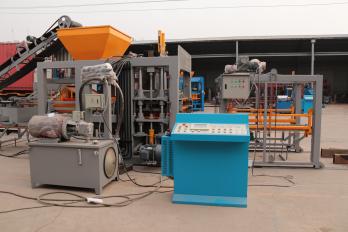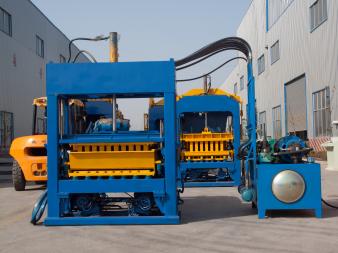- 21
- Feb
What are the different types of blocks that can be produced using a block making machine?
A block making machine is a specialized equipment used for the mass production of various types of blocks for building and construction purposes. It is designed to produce uniform blocks with high strength and durability, making them suitable for a wide range of applications. The machine operates by compressing and compacting raw materials such as cement, sand, gravel, and other additives into a specific shape and size, which then undergo a curing process to form solid blocks.
There are several types of blocks that can be produced using a block making machine, each serving its unique purpose and meeting different construction needs. In this article, we will discuss the various types of blocks and their applications.

1. Concrete Blocks
Concrete blocks are the most commonly produced and widely used blocks in construction. They are made by mixing Portland cement, water, sand, and gravel or crushed stone in a specific ratio. These blocks are known for their high compressive strength and durability, which make them suitable for load-bearing structures such as walls and foundations. Concrete blocks can also be molded into different shapes and sizes to meet different construction requirements.
2. Hollow Blocks
Hollow blocks are similar to concrete blocks, but they have voids or cavities inside them. These voids reduce the weight of the block, making it easier to handle and transport. Hollow blocks are commonly used in non-load bearing walls, as infill in reinforced concrete structures, and for cladding purposes. They are also preferred for partition walls due to their excellent sound and thermal insulation properties.
3. Interlocking Blocks
Interlocking blocks are designed to fit together like puzzle pieces without the need for mortar or adhesive. They are made from a mix of cement, sand, and water, and can be reinforced with steel rods for added strength. Interlocking blocks are primarily used for building walls, pathways, and driveways. They are also used in the construction of retaining walls and in landscaping projects.

4. Curbstones Curbstones are blocks
used to define the boundary between a road or sidewalk and a landscaped area or parking lot. They are made from high-strength concrete and are available in various shapes and sizes, depending on their intended use. Curbstones are typically produced using a specialized block making machine that can handle the large size and weight of these blocks.
5. Paving Blocks
Paving blocks, also known as pavers, are widely used for outdoor surfaces such as driveways, patios, walkways, and parking lots. They are made by compressing concrete or asphalt mix into a specific shape and size, giving them a smooth and uniform surface. Paving blocks are highly resilient and can withstand heavy loads, making them suitable for use in high-traffic areas.
6. Roofing Blocks
Roofing blocks, also known as roofing tiles, are specialized blocks used for constructing roofs. They are made from a mix of cement, sand, and water, and are typically molded into an interlocking shape to ensure a secure fit. Roofing blocks are lightweight, durable, and weather-resistant, making them a popular choice for roofing solutions.
7. Thermal Blocks
Thermal blocks, also called insulating blocks, are specially designed to provide high thermal insulation for buildings. They are made by mixing expanded polystyrene (EPS) beads with cement and water, which are then compressed and cured to form a solid block. Thermal blocks help reduce energy consumption by keeping buildings cool in hot weather and warm in cold weather, making them an excellent choice for energy-efficient construction.
8. Soil Blocks
Soil blocks are blocks made from compressed soil stabilized with a small amount of cement and water. They are commonly used in areas where other building materials are scarce, and the soil is suitable for block production. Soil blocks are eco-friendly, cost-effective, and can be used to construct simple structures such as low-cost housing, garden walls, and animal shelters.

a block making machine can produce a wide range of blocks that cater to different construction needs. From load-bearing walls to landscaping projects, these blocks offer durability, strength, and versatility, making them essential components in the construction industry. With the advancement of technology, new and improved types of blocks are being developed, expanding the scope of this equipment and driving innovation in the construction field.
